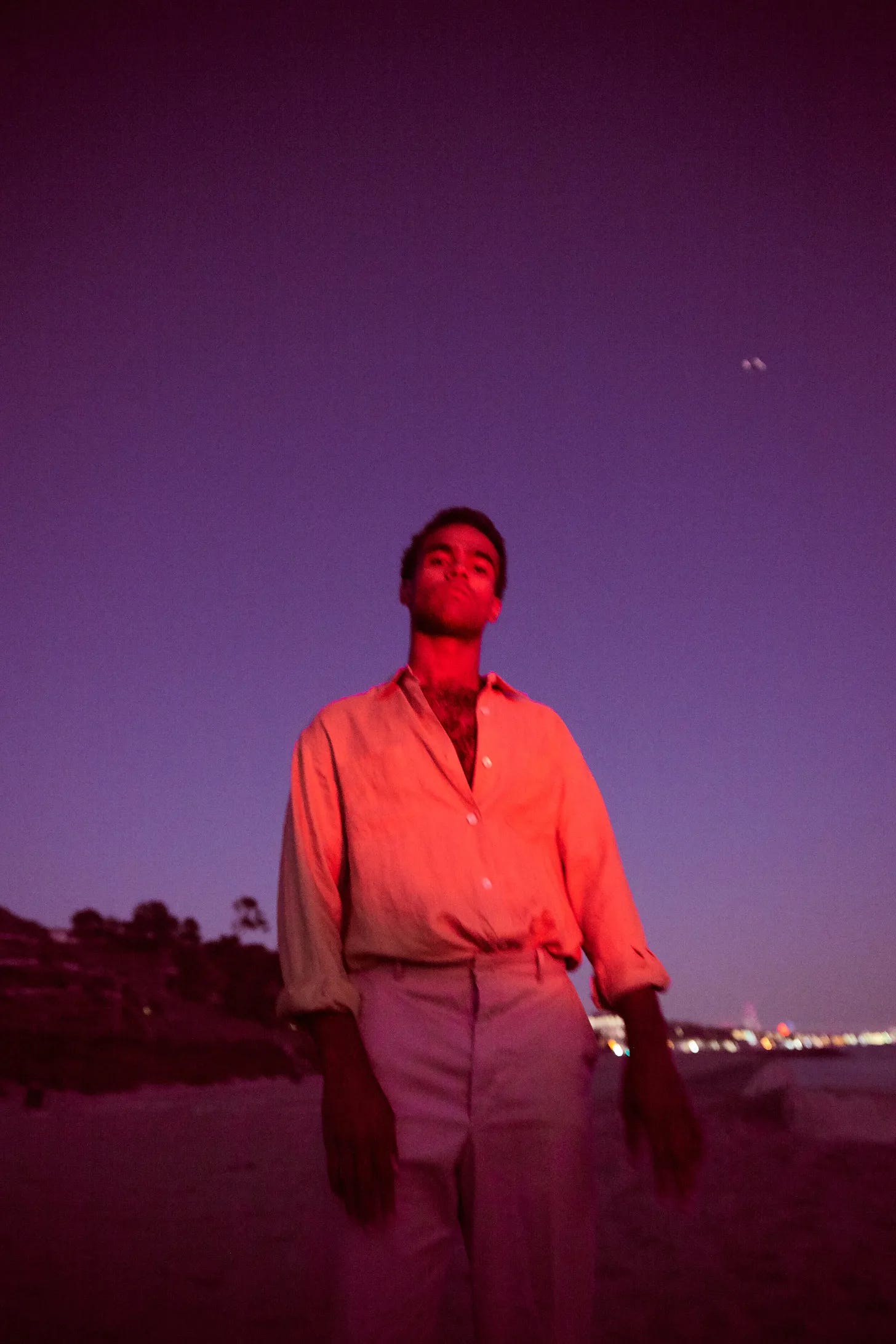Phillip Youmans (Jan. 2020)
For every one story told, there exist hundreds which never see the light of day. Both fictional and not, the memories and characters within these moments are thrown to the wayside of history. Yet now, in what will be remembered as the ‘Information Age’, narrative archaeologists are finding voices previously unheard and transforming them into grand speeches for the world to see and hear. This is how Phillip Youmans is differentiating himself from the film-making masses. While so many zig into the future and revisit classic historical milestones, Phillip is zagging into the untouched past, creating films that unearth both the harsh truths and poised heroics of communities unfairly neglected. Phillip is telling the stories that matter during a moment in history where their lost lessons hold more truth than ever before.
Being a native of New Orleans, the strength of storytelling is in his blood. Surely ghost stories were traded on the playground amongst a backdrop of America’s most haunted city. It’s the rare sort of place where historical sites of hope and violence tower over boulevards while sandwiching modern shops and tourist traps. This is the environment that made his eye aware of the natural beauty within the world. And while it seemed as though everywhere outside of his spot on earth was the place to dig deep, he now realizes that under his feet, under the soil he grew up on, exist the greatest stories never told.
And don’t get it twisted, this isn’t some self-fulfilling idealism which hopes to use the stories of others to best get people into seats. Instead, Phillip is utilizing the power of film-making to fill the gaps of history and complete the quilt of humanity. As so many sit idly by watching history drown in the pool of modernity, Phillip is blowing his whistle and becoming the lifeguard future generations will thank for his selflessness. He realizes that once these narratives are gone, they’re gone forever. It is up to this generation to cherish them with full hearts.
In that, above all, is the power of what Phillip is setting out to do and successfully achieving. He is not only telling past narratives but inspiring a generation to unearth the histories beneath their own feet, under the soils they grew up on. Phillip’s journey has only begun, but his goal is clear and the mission has been accepted. His vision will lead this generation to band together and tell the truths of this world, however hard they may be to hear. His vision will reignite humanity and, truthfully, grow our hearts in a time where they’re a few inches too small.
Just to begin, how’s your day going and how have you been as of late?
My day is going pretty solid. I’ve been working on a music video and just finished the last edits on it before it got sent to a colourist back in New York. I’m in Los Angeles right now. I saw my sister today and I’m actually at her place answering emails. I figured I can move around with it and hang out with her, even if we’re both busy. She’s studying for exams and I’m working on my own stuff and haven’t seen her in over a month because I was moving around. It feels good to be somewhere familiar for a few days. I just put rent down on a place in LA for November and December, so it kinda feels like a stable spot. I'm not trying to do anything long term until I figure out where I want to live.
But you do go to NYU, right? Do you not see New York as a place to live?
No, I love New York. I think New York is hard to compare to in terms of creative inspiration. New York is also incredibly expensive and sometimes can swing my mood in a certain direction I don’t always enjoy. My mood is definitely better out here, but I feel more excited to go out in New York as my friends are more accessible and it's a whole different life palette. I'm also just out here right now because my producer is here and they want to develop our next project in LA.
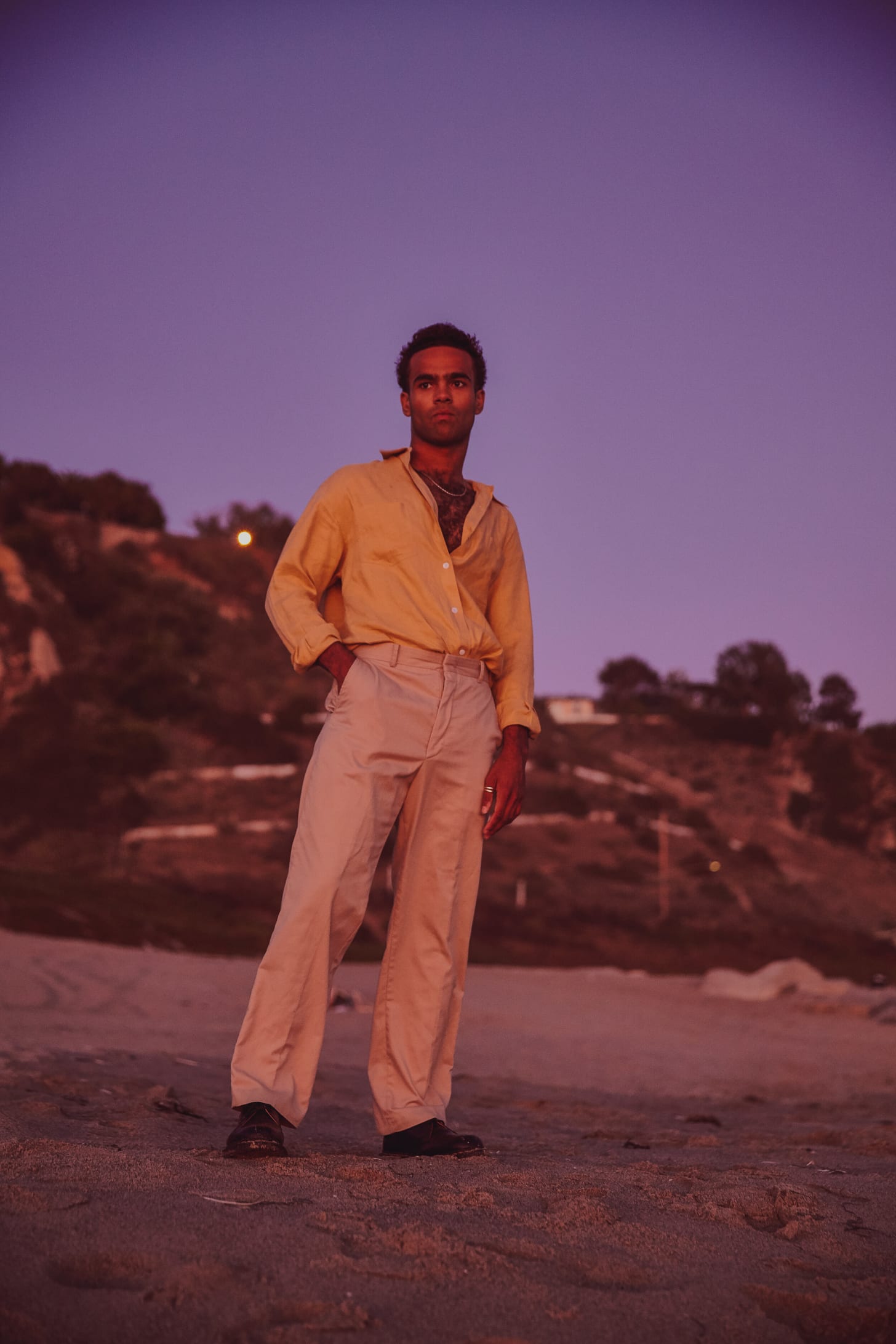
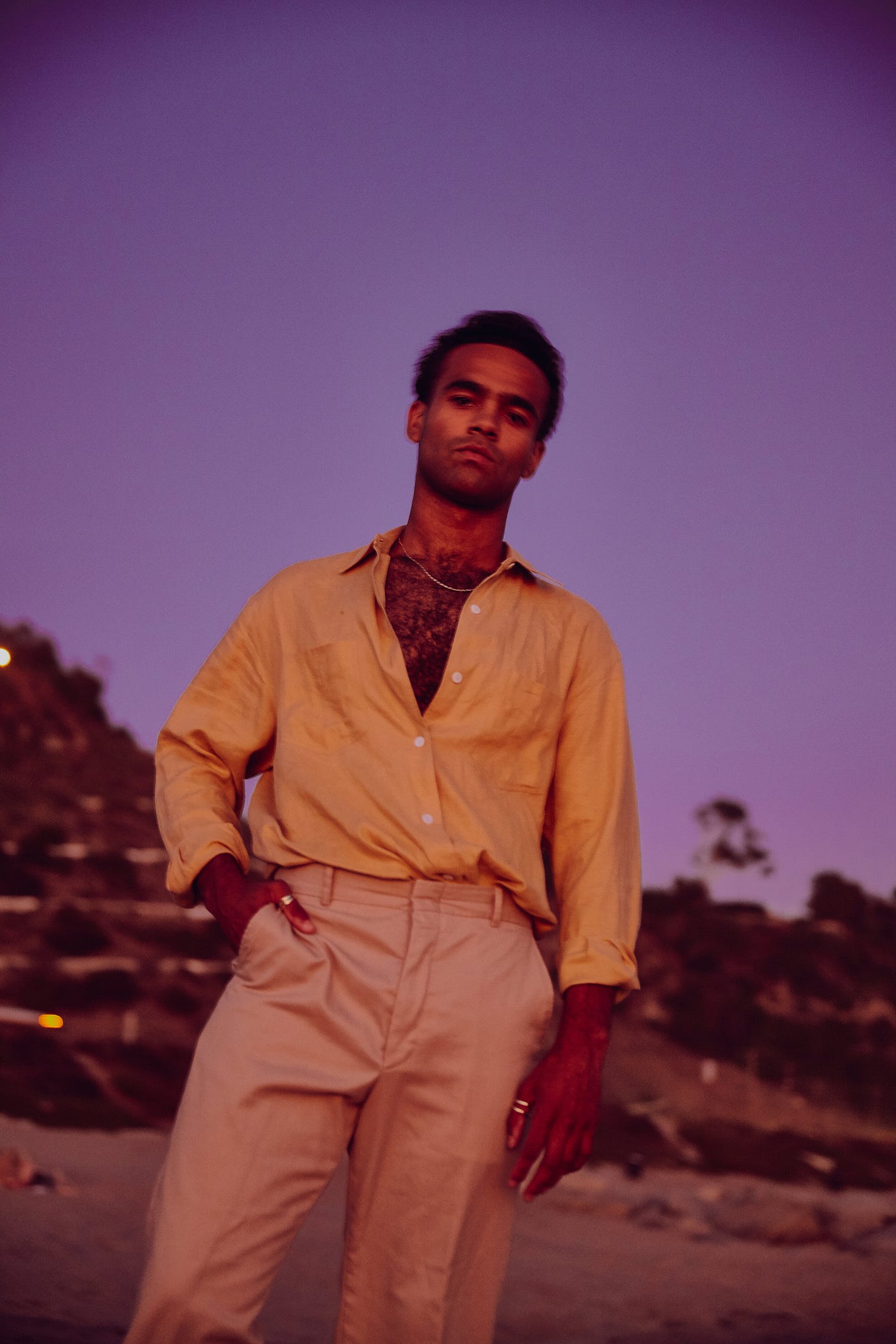
Yeah, why don't we start by talking about that new project? I saw in another article you were going to do something about the Black Panthers, what is drawing you to that story and making you feel it’s an important path to go down.
I first discovered the New Orleans chapter of the Black Panthers early in high school. I was down a rabbit hole on Google of Louisiana black nationalism and trying to see how that stuff was running in the south. I went to a screening at the Ashé Cultural Arts Center, met with the Panthers and spent a lot of time with them. When I first met them, I had this sort of broad stroke idea of what their narrative would be as I had read the one book about their chapter. But I realized in speaking with them they actually didn’t like the book and had some differing opinions. The thing with the book is that it tries to get the whole picture and interview both sides, but it was clear that the Panthers felt certain things were skewed. Once I got to know them and hear their stories, it did reshape key notes about the narrative and allowed for me to get their experiences first hand, instead of from a book.
It's interesting as well because you're specifying onto that New Orleans chapter of the Black Panthers and you are someone with roots in Louisiana. What really stuck out to you about that environment and location growing up and what do you feel still stays with you after all these years?
Growing up in New Orleans I just wanted to get out. I felt I had to get out to make anything of myself. But as I got older, my perspective shifted and towards the end of high school, I began to love the place. That need to separate drove a lot of my decisions at the end of high school. I went to NYU because I felt I needed to go to a big city to get an opportunity, but it's interesting how making Burning Cane opened all of that for me. Burning Cane is so aligned with what I know and the world I grew up around. By not trying to force any insincere perspective and staying steadfast in what I know, I opened avenues I didn't have to achieve through leaving. Louisiana is a hauntingly beautiful place, especially during the time of the Panthers. It was still in-defacto a Jim Crow society where you had ‘white only’ signs around the city. If you looked at legislation, it was post-Jim Crow, but the attitudes to the fresh notions were aligned with the old way of thinking. One interesting thing to note is that when we follow the Panthers in the film they aren’t official Black Panthers. When they first started out, the LA Panthers didn’t give them their full endorsement. They were not full-fledged Panthers.
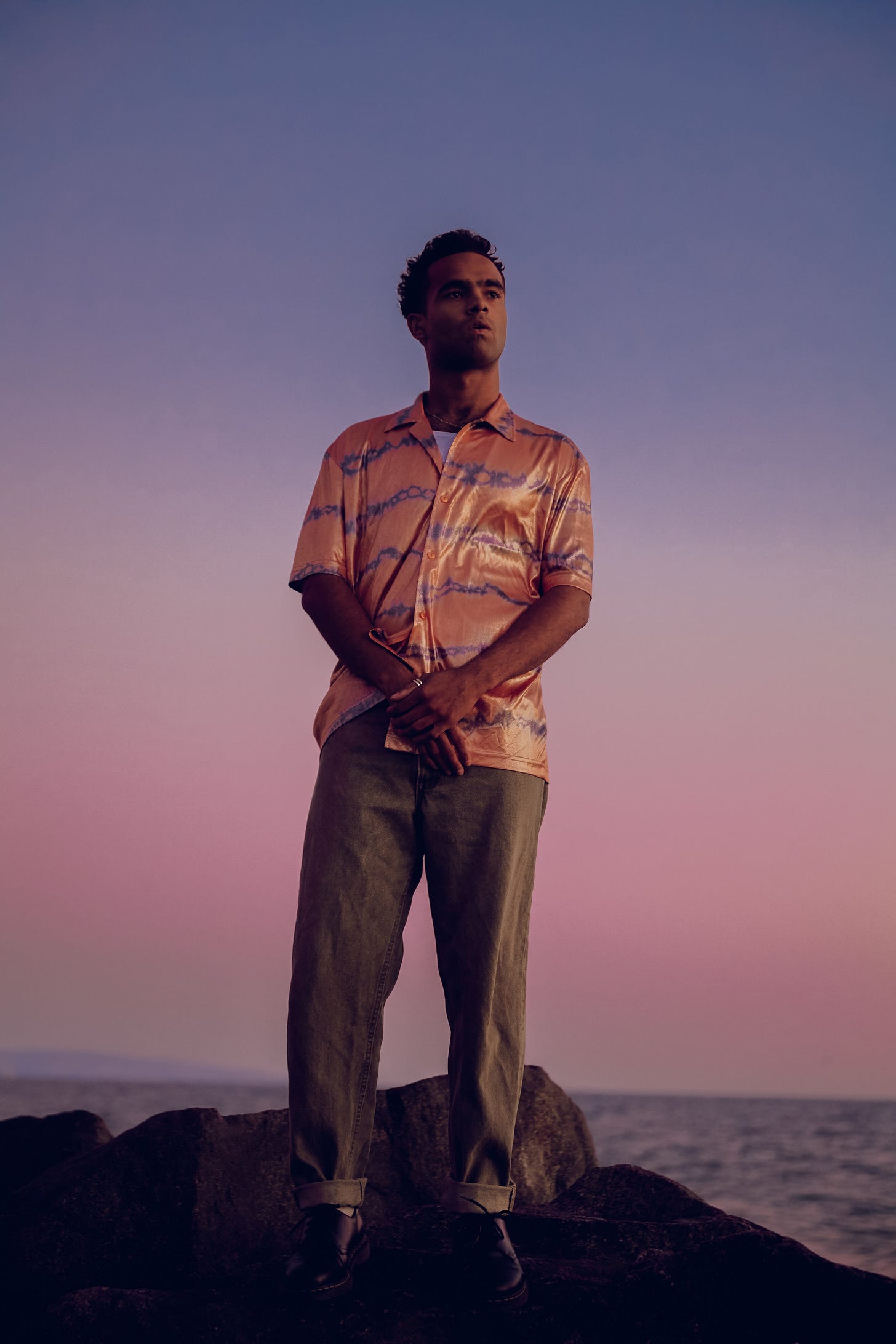
That's so crazy. Just the fact that entire history exists but isn't even known of in the world of Black Panther history.
It tells you so much about them and how they were more into the ideas and work of the Panthers as opposed to being Panthers themselves. It also says so much about the whole ethos and how different the times were. When you think about it, you would think the battlegrounds of the country would be in the south, but the main Panthers saw NY and LA as the places to focus on as the south was a lost cause. Steve, Malik and all of them went down with Barbara, who the film focuses on. Interestingly, there were real Panthers within their ranks. When they had to go to NY to meet Huey [Newton], they sent a full-fledged Panther to speak with him. The fact they were idealists over title shows their importance.
What other stories, perspectives and unspoken voices do you feel need to be given that megaphone in the black community through film and what are those sets of eyes that haven’t been looked through?
I think we need to embrace aspects of the black experience otherwise left in the past. Barbara, who organized the New Orleans Panthers, was married to Malik in the chapter, but by the time they were actually in the chapter, had ceased to be each others’ romantic partners and exclusively viewed each other as comrades. But within that time there was new prosperity in their relationship as they already had two kids. By the time they were just comrades, they had become sexually liberated with other people. It’s so interesting for them to be mature enough at a young age to say, “I love you, but I’m not in love with you, and that's ok.” That's fascinating to me! I think there's an aspect of their experience beyond the community work worth speaking of, such as how they communally lived amongst each other in every aspect of the word. Especially with Barbara, she was juggling so many tasks but there was always someone in the house to watch her kids. There was always a support system no matter what they did. That side of the experience hasn’t been spoken of and is something that documentaries and other stories miss.
By making it a narrative film and not one in a documentary style, what do you feel can be gained?
I think documentaries are of course an art form and the ones to come out on this topic are solid and educational. But if we’re talking about the freedom within narrative expression, the freedom in a scripted narrative feature, for me it's more freedom to create and accentuate aspects of the story. Having them in such close collaboration with me is an interesting mutualistic collaboration. They’ve told me a lot over the years about what made them human and what they struggled with. Trying to tell that story and being aware of those things is important.
Speaking on the Panthers, and even with the fact that you went out of your way to see your sister today, I’m interested in what the word ‘family’ means to you and what you feel when you hear that word?
Family means me and my mom and my sister in the south. It means hot summers. It means humid weather. It means good food and putting on five pounds at a time. It means unconditional love. I think there's no one in my life who has as much patience for me as my family, despite how I’m not always my best self. I mean, there's no one else out there who gives a damn about you quite like your family, especially in the sort of career I feel I’m navigating. The family is the rock. It's interesting because Burning Cane is such a familial story and this new film is familial in the sense of their bonds amongst each other. Their friendships are as thick as blood.
Do you feel film has always been in your DNA even before you got into it? Almost this love of storytelling and characters, individuals, narratives and history. Has it always been with you even when you didn’t recognize it?
I would say yes because when I was younger I used to dress up as Santa Claus and Indiana Jones and Tarzan a lot. I’d get a dirty rag and wrap it around my waist and swing around the house. I actually started as an actor and realize in hindsight that this was always there, I just never knew it would bite me quite in the way it did. But when I look back, there were always seeds of interest.
I remember when I was younger the first film that really struck me was ‘The Good, the Bad and the Ugly’, and I remember watching it and feeling emotion for film for the first time. Since then the medium has been a landmark in my life. Do you remember that film for you and the moment that the medium almost become something legitimate?
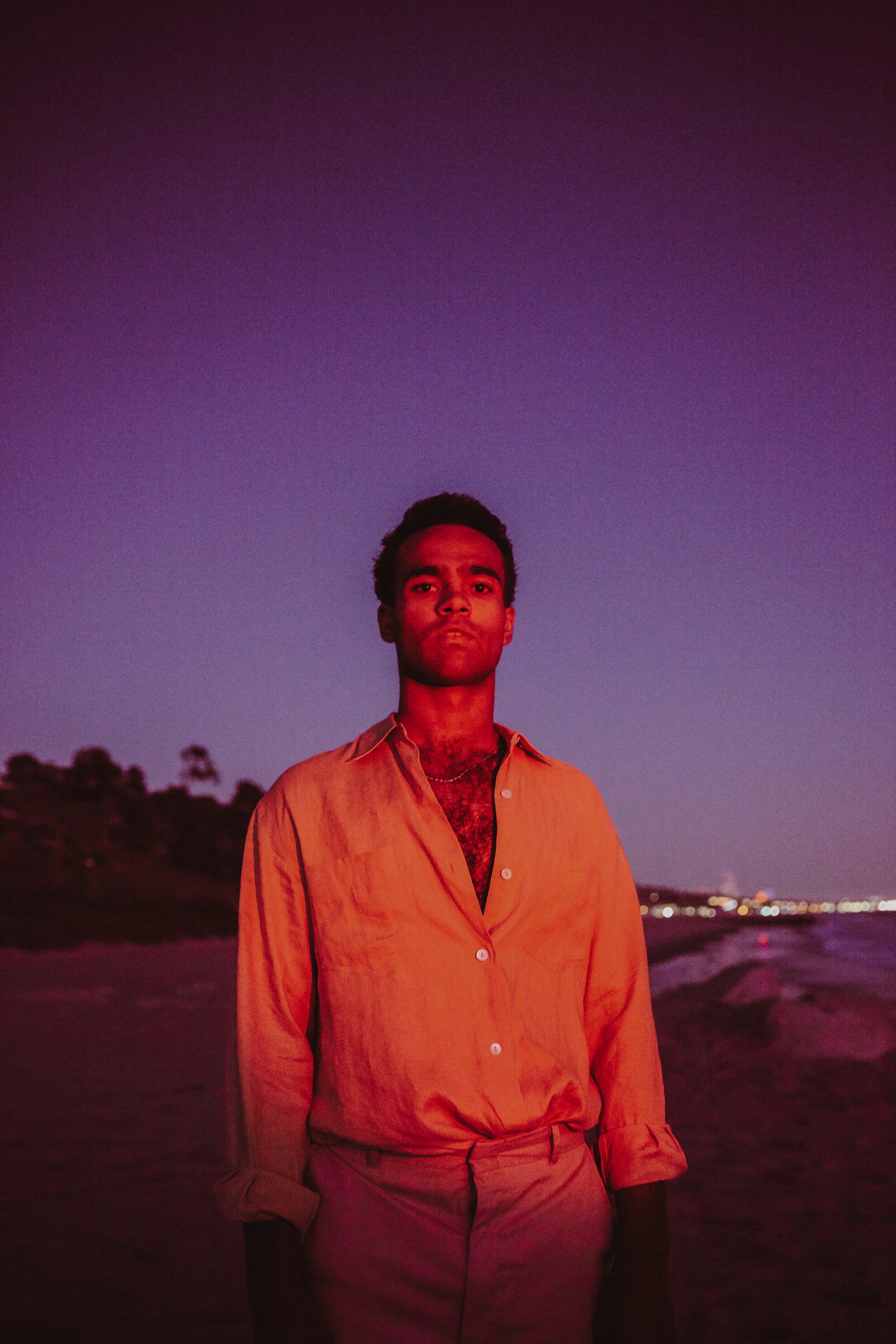
It may sound cliche, but seeing ‘2001: a Space Odyssey’ made me think of film in a more abstract way. More than just the 3-act-structure sense. The fact the movie has this amount of cultural impact and doesn’t adhere to anyone's structure just blew my mind. It was completely Kubrik’s creative desire and creative genius. I’m not saying it's my favourite film, but it was the first film that opened up my eyes to seeing film as an art form beyond rigid structure.
Another interesting facet to your story thus far is the fact you also wrote Burning Cane and that you're someone who is able to express yourself both visually and in written form. What is your approach to writing a story and the way you see a story come to life? I’m sure you've heard of the difference in a Planner versus Planter writer, wherein some let the character grow as they write and others have the arcs fully planned out. What are the philosophies you hold onto when telling a story?
I usually outline vaguely, it's not rigid. Having the organic part of the story where it can grow comes scene-to-scene. I'm always willing to add new characters and scenes. When it's a shorter film I try to let it happen organically, but with long-form pieces, I think it's important to know where you hope to see everything end up eventually. Some ideas, especially when I was younger, were spur of the moment. But being older I wanted to have that structure and still allow myself to be fluid. With dialogue, I try to cut it down every time I go through a draft and make it as bare-bones as possible. I guess I’m falling into the age-old ‘show-don't-tell’ mentality. I really want to solidify being able to communicate with images more than words as it makes the words more worthwhile every time they’re spoken.
So in the documentary ‘Heart of Darkness’ about the making of ‘Apocalypse Now’, Francis Ford Coppola has a quote where he says that one of the hardest things as a filmmaker is when you aspire for something big and you just don't get it and it comes off pretentious. But he says that no matter what, you have to make the film so you personally can find the answers you need. How would you personally respond to that notion that a film has to be seen through, so at the very least, you can find peace within yourself?
I think for me the most interesting stories tend to come from the most personal perspectives and in my case, I feel there were a lot of things I was working out with Burning Cane. I had to work through the pitfalls of toxic masculinity and jealousy and understand that it came from insecurities. I had to look within myself for those answers. Also, there was the entire conversation of the church and the definition of religion in my life. The project as a whole really allowed me to humble myself when talking about my work. I've been more open to disagreement during a conversation about my work and can respectfully see both sides. It's made me more patient. I didn't necessarily grow through it because I still have a lot to go through, but I came towards the project with questions and could come away with personal understanding.
With all the success and support Bruning Cane has got, how do you feel knowing that the message is out and that the story is being seen by such a wide array of eyes?
It’s crazy. A little terrifying but really exciting. It's such a wild feeling to think about. This film has been so personal to me and something I’ve kept with me everywhere I go on hard drives for years. But now, it’s available for the world to see. I can’t believe it.
As a young filmmaker, while on the topic of Burning Cane still, there is often a tendency to write about youth and coming of age. But this film has differing perspectives, both adult and child, while also speaking of larger family issues. What importance lies in not telling the story from those limited perspectives that exist when of a certain age and how were you able to fully step into those shoes while making the film?
In making this film I wanted to approach it with an openness, especially in casting. I knew how I envisioned the characters but didn't want to impose on good talents. With Dominique [McClellan]’s character, I thought he would be young and fresh out of high school. But he's a great actor and helped me recognized that the character worked well with a different vision age and maturity-wise. It was different than the original idea but better for the overall piece.
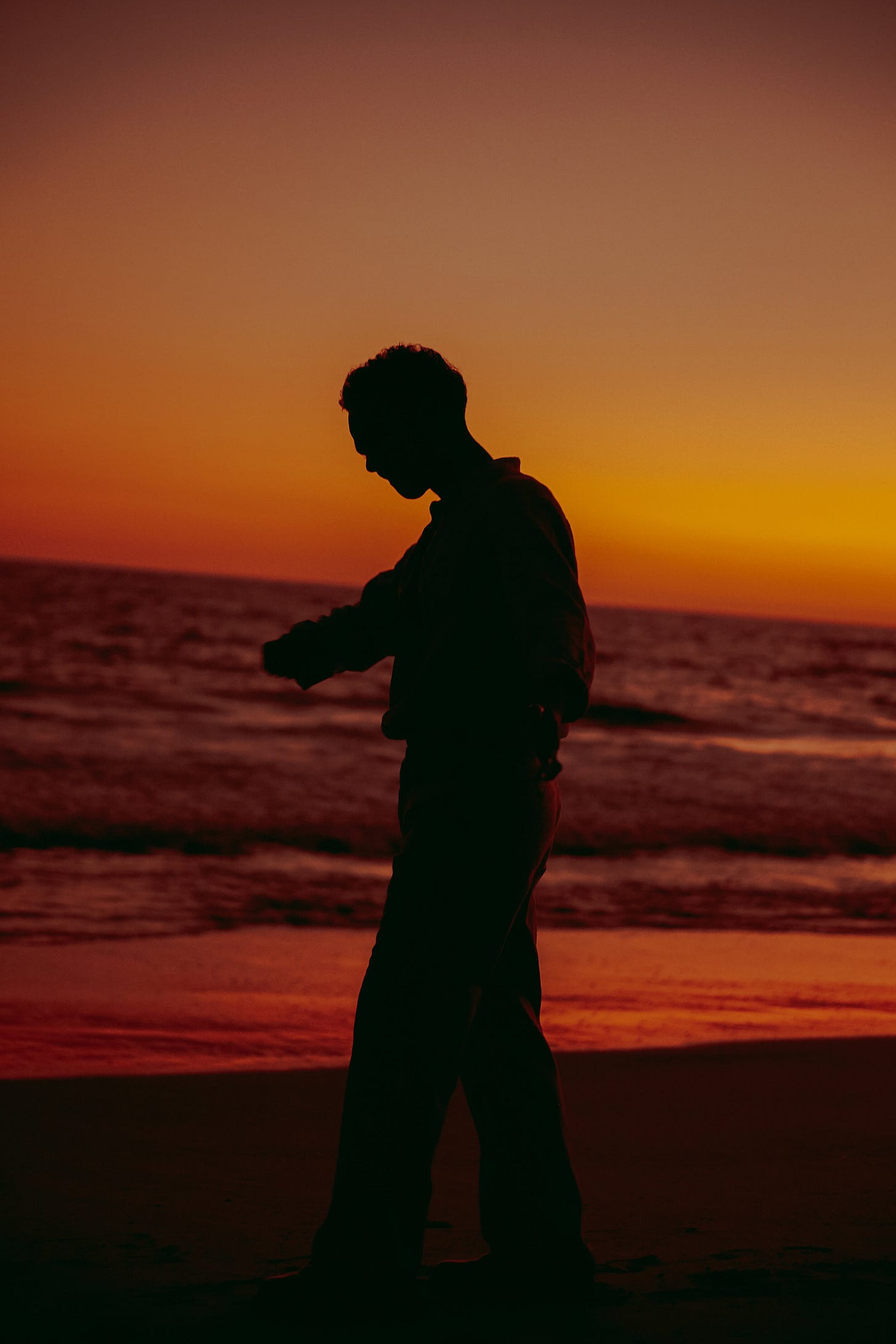
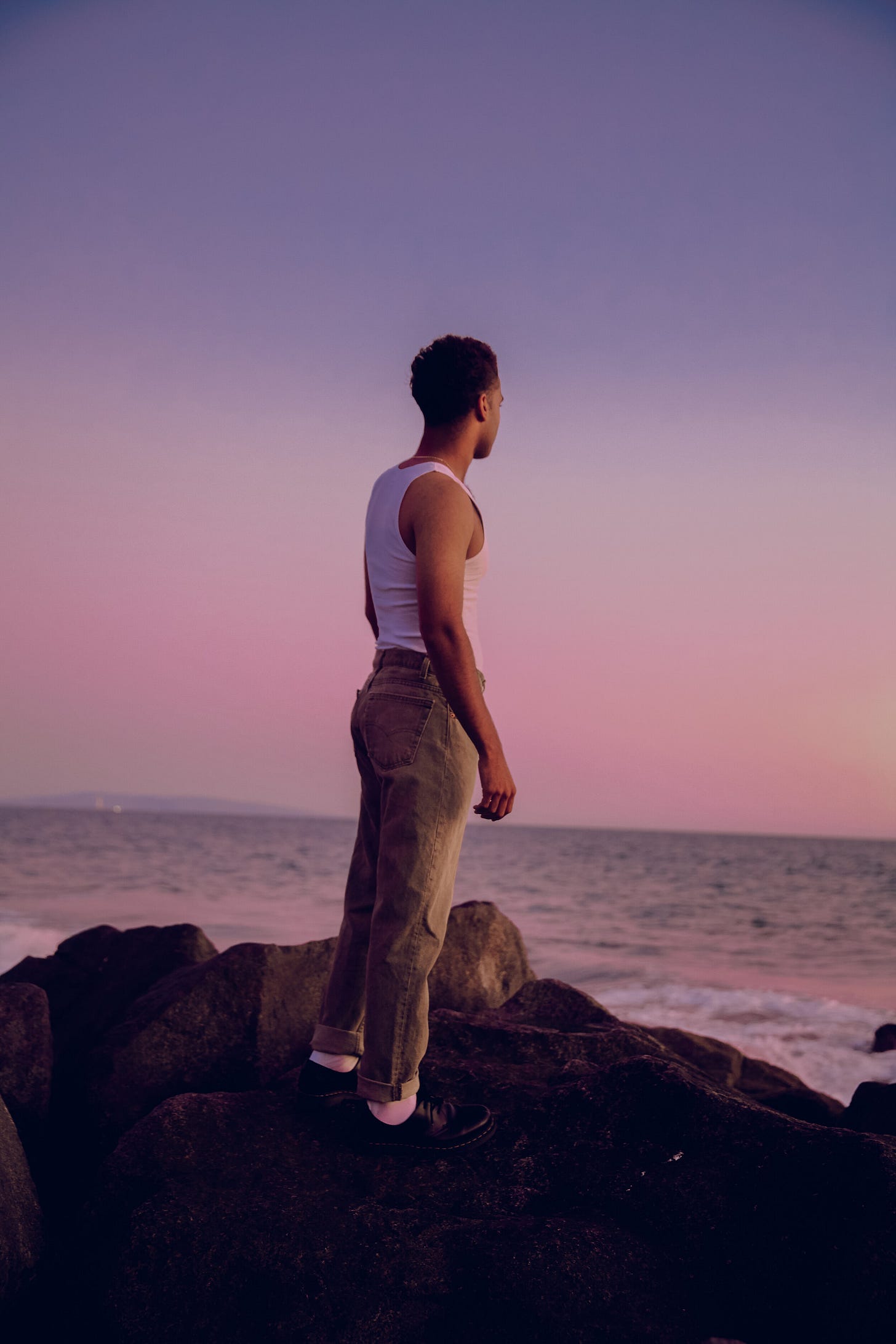
When you wrote the characters I'm sure those visions of them existed, but through the process did you find them to take a life of their own?
The entire process was very collaborative between the actors and I. A script was there, but they’re incredibly smart actors who are artists in their own right. I wanted to make sure they had the space to create and have the open atmosphere to experiment. Allow for deviation to happen from the original goal of a scene and feel the positive ability to be open. I never want to create a rigid hierarchy as I feel that's the complete opposite of what it means to create good art, or at the very least, a good film.
Film is such an odd medium in the sense that it combines literature with theatre and music and visuals in a cinematic way. But when you set out to make a film personally, which aspects do you feel most important to you?
I think to create some sort of familial atmosphere. For me, I hate working in hospitality. With Burning Cane, it was all my friends working on it and really was the best summer of my life so far. More than anything, everything needs to be grounded. I want everyone to enjoy themselves and to feel welcome. With Burning Cane, we didn't have to do ego checks as we were really there just for the enjoyment of creation.
With film, there are also varying levels of validation for a filmmaker. For some, it may be just seeing the movie out but for others its awards and for others it's just the process itself. What to you is the great validation in this whole journey you've been on?
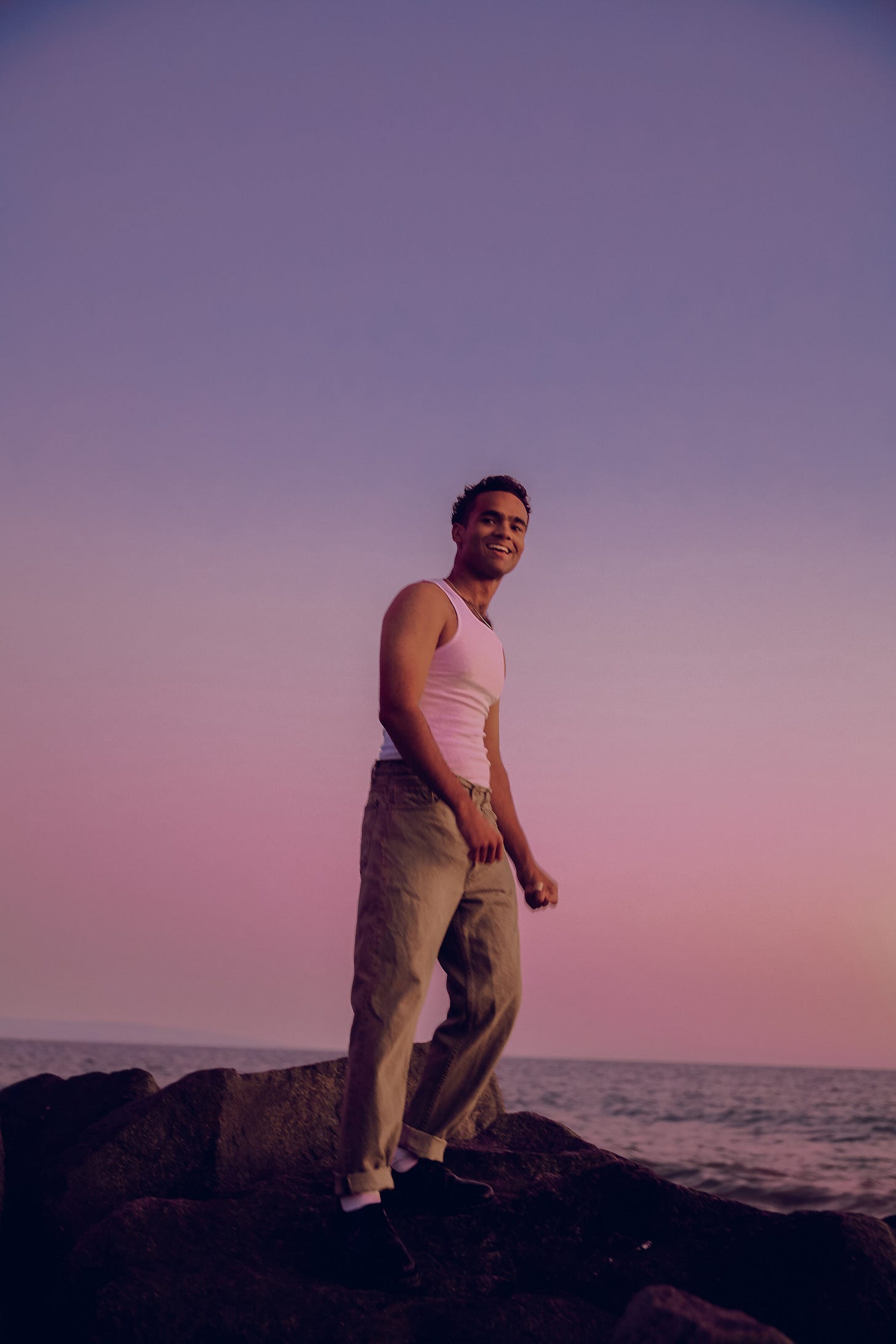
The festival circuit made me feel confident in my work in a way I hadn't been before because I followed all my creative instincts with this project, I had no outside investors or anything. I felt I had the freedom to be an artist so I had to indulge in it. What it tells me is that people are interested in those new perspectives and talking about things we may have not spoken about before in film. I think people want authentic storytelling.
It's so crazy you mention it not having outside investment considering that it's now been picked up by Ava [DuVernay]’s company Array. What does it mean to you to have the film picked up by a black-owned company that upholds the same principles as those seen within your films?
Everyone at Array is wickedly intelligent and incredibly kind. Ava is uber-talented and a legend for a reason. I feel so fortunate. It's a pinch-me moment and it's still pretty new. I don't know what to say. A year and a half ago I was reading about Ava and her work and now to sit and do a photoshoot with her for the LA Times, just a year and a half later, is the craziest feeling.
Would you say the most intense feeling through this whole process has just been feeling within a dream?
Yes, exactly. It feels crazy because everything is becoming normalized, but it really is a dream situation to be within. It requires a lot of work and I do put so much into it as it is my favourite thing to do in the world. I have the most fun being on set and creating. It's all for the greater purpose of making films and being a filmmaker and all that comes with it.
Through this whole process, you have had such an intense focus, which is so admirable to see. When you had felt at all a sense of overwhelmingness, how were you able to get back to being grounded?
I feel like I’m on an exhilarating ride, but at the end of the day, it's just about getting back on set and not worrying about much more than the next day's shoot. I always try to put my best foot forward and be transparent through everything. At the end of the day, you don't want anything to sabotage making movies.
If you could look back generations from now and see the impact this journey you are about to set off upon will hold for both you and the world entire, what do you hope people remember and understand it all for?
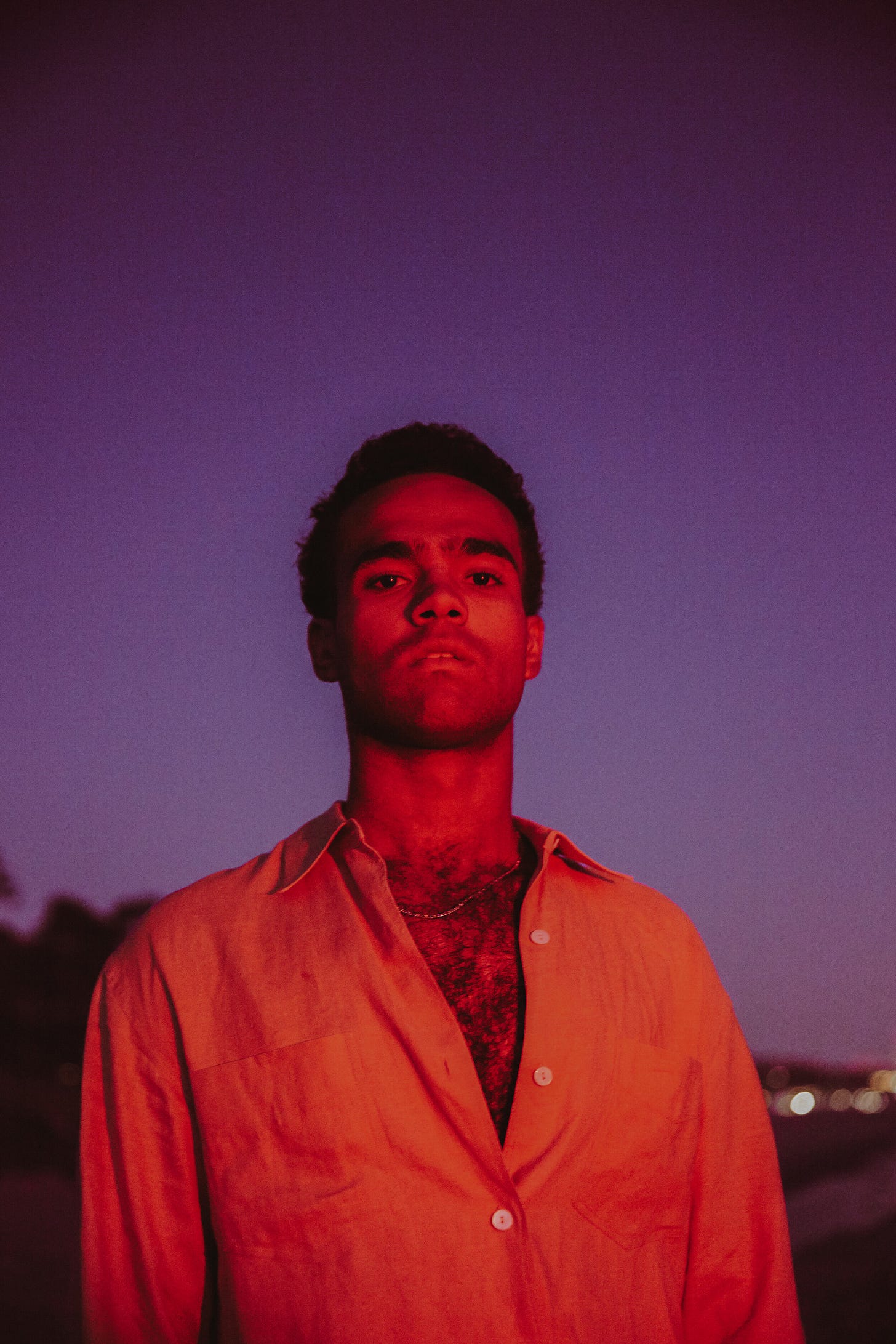
When I was younger, I just wanted to be the greatest director of this century. But over time the goal with film is less tied to ego. I want people just to look back and say that I told honest stories and that I wasn't ever selling out my vision.
What do you feel are the lessons you have learned through this process that you wish you would have known prior? Maybe they're lessons you can only learn through the process.
I think that a lesson someone should learn before embarking on their first film is that, depending on the resources you have, you have to be aware that you're not always going to get what you want. You have to be malleable with the story and understand that things aren't going to be perfect. You have to have a solid group of collaborators and producers because you can't do everything alone, especially in film. Go with your friends and make something with them. Make sure they feel respected and that their opinion is considered and that they feel heard. When you're directing it is your vision, but you have to put consideration towards those putting in manual labour to help you realize this thing. Always just be genuinely nice. It's important to be honest and try to be upfront. I think being aware of your friends and community and your resources allows you to realize the vision. We really can make films on anything now, if the story is there, go for it. It’s democratized in the best way.


